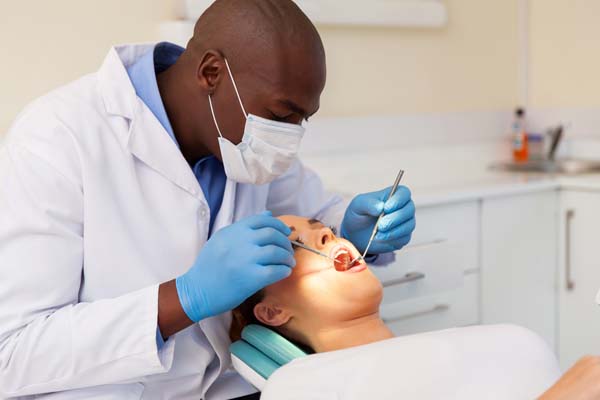What Are the Different Types of Sedation Dentistry?

Sedation dentistry makes going to the dentist less scary and intimidating. If you suffer from dental anxiety or maybe have a hard time sitting still, sedation dentistry might be just the trick to feeling confident while going to the dentist.
What is sedation dentistry?
This type of dentistry utilizes medication to help patients relax during the procedure. Unless the dentist uses general anesthesia, patients will typically be awake, in varying degrees, during their time with the dentist.
Levels of sedation
According to WebMD, the varying levels of sedation go as follows:
- Minimal sedation — fully awake but completely relaxed
- Moderate sedation — also referred to as “conscious sedation," patients slur words and may not remember parts of the procedure
- Deep sedation — Patients are barely conscious, but can still be responsive
- General anesthesia — patients are completely unconscious and cannot wake up until it wears off
Reasons for sedation dentistry
While sedation is beneficial for helping patients overcome their phobias and anxiety when it comes to the dentist, there is also clinical reasoning behind it. For people who have low pain tolerance, sedation may be the best way to help ease into dental care. Patients with highly sensitive teeth or a severe gag reflex benefit from sedation dentistry, as well. That's not all. Sometimes patients have a hard time sitting still in the chair, whether it be due to high energy, anxiety or short attention spans. Dentists often use sedation for these patients, too. If someone requires a lot of dental work, it may be in their best interest to talk with their dentist about sedation dentistry.
Methods of sedation
There is no “one size fits all” when it comes to sedation dentistry, which is a good thing because not everyone is the same. WebMD offers a comprehensive list of the types of sedation available:
- Inhaled — minimal sedation, uses nitrous oxide, or laughing gas, with oxygen that flows through a face mask
- Oral — minimal to moderate sedation, is typically in the form of a pill taken about an hour before the appointment.
- IV — moderate sedation, used to sedate patients immediately
- Deep sedation and general anesthesia — patients are completely unconscious for the duration of the procedure
Local anesthetics
Even if a dentist gives their patients sedation, they will still need to use local anesthesia. After the sedation has started working, the dentist will give the patient local anesthesia at the site where they will be working. Local anesthesia will reduce pain at the site of the dental work.
Children and sedation
In some cases, dentists will use sedation with children. According to WebMD, nitrous oxide is typically safe to use with children, and most dentists can administer it. A small percentage of pediatric dentists are also trained to give children oral sedation. As long as the dentist adheres to the recommended dose for your child's age and weight, this is also a safe option.
Learn more about sedation dentistry
Whatever your reason for needing sedation dentistry, know that you have options. Talking with your dentist about your concerns, medical history and what dental work you need is a great way to figure out which method is best for you. Contact our office today so we can help you get that beautiful smile you’ve always dreamed of.
Are you considering sedation dentistry in the Benicia area? Get more information at https://beniciadentist.com.
Check out what others are saying about our services on Yelp: Read our Yelp reviews.
Recent Posts
There are two primary causes for emergency dentistry: sudden and unexpected worsening of oral health concerns and dental trauma. This review specifically discusses the most common types of dental emergencies that are related to mouth trauma and provides an overview of how an emergency dentist can treat each concern.The most common emergency dentistry mouth trauma…
A preventive dentist is vital in protecting long-term oral health by identifying and addressing risks before they develop into serious concerns. From proactive care to personalized guidance, a preventive dentist helps reduce the likelihood of cavities, gum disease, and other common dental conditions. By encouraging consistent checkups and healthy habits, this approach supports stronger teeth,…
Finding out that you need a root canal can be nerve-racking. Caring for the treated tooth can be even more stressful. Knowing what to do after the treatment can help you prepare well for it. Here are some tips for a smooth and quick recovery after your root canal.The patient must wait to eat as…
Implant supported dentures are often ideal for a person with missing teeth who has enough bone to support implants. Dental implants have become immensely popular because of the host of benefits they offer. Implants can support a denture, bridge, or crown. Keep reading to learn more about the advantages of implant supported dentures.Implants are artificial…


